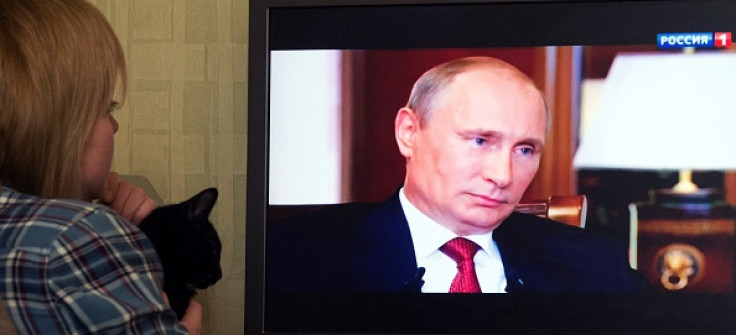David Cameron creates fund to stop Putin rebuilding Soviet Union

British Prime Minister David Cameron has created a fund to help Eastern European states curb Russian influence.
The "Good Governance Fund" which is "aimed at strengthening democratic institutions in areas that are fearful of Russia's influence" would amount to £20m ($30m, €28m) in 2015 and 2016.
It will consist of £5m for Ukraine, and further grants for Moldova, Georgia, Bosnia-Herzegovina and Serbia, Bloomberg and Sky News reported.
The move comes as European Union (EU) leaders agreed to extend economic sanctions against Russia until the end of 2015, in a bid to force Moscow to help implement a full ceasefire agreement in Ukraine, where a shaky truce has been in place since a peace deal was brokered in Minsk on 12 February.
A spreading web of influence
EU leaders have criticised the Russian President Vladimir Putin's web of influence across Europe, after he annexed the Ukrainian territory of Crimea in March 2014.
Crimea's prime minister this month said the region had returned to its historical Russian homeland and will never again be part of Ukraine again.
In February this year, Putin agreed a €2.5bn (£1.8bn, $2.67bn) loan for Cyprus, an EU member. In return, Russian navy vessels will be able to dock in its ports.
The Kremlin has also found powerful allies in Western Europe: after the French right-wing National Front (FN) party leader Marine Le Pen visited Russia last Autumn, her party secured a €9m loan from the First Czech Russian bank.
In Greece, Putin gave support and encouragement to Syriza, the far-Left Greek party which was calling for withdrawal from Nato two years ago. In January, the Russian ambassador to Athens was one of the first visitors received by Alexis Tsipras upon his election as Greek Prime Minister.
Based on a Cold War-era programme
Cameron's fund is based on a Cold War-era programme introduced by former British prime minister Margaret Thatcher in 1989.
Her "Know-How Fund" was initially established to develop economies, governance and institutions in countries that had been under the Soviet Union's umbrella such as the former Czechoslovakia, Hungary and Poland.
Russia has rejected accusations by the EU that it is backing the rebels with arms and assistance.
The Ukraine conflict has claimed more than 6,000 lives.
© Copyright IBTimes 2024. All rights reserved.






